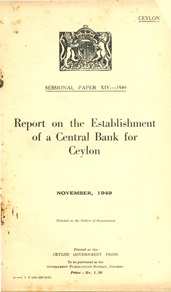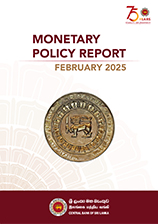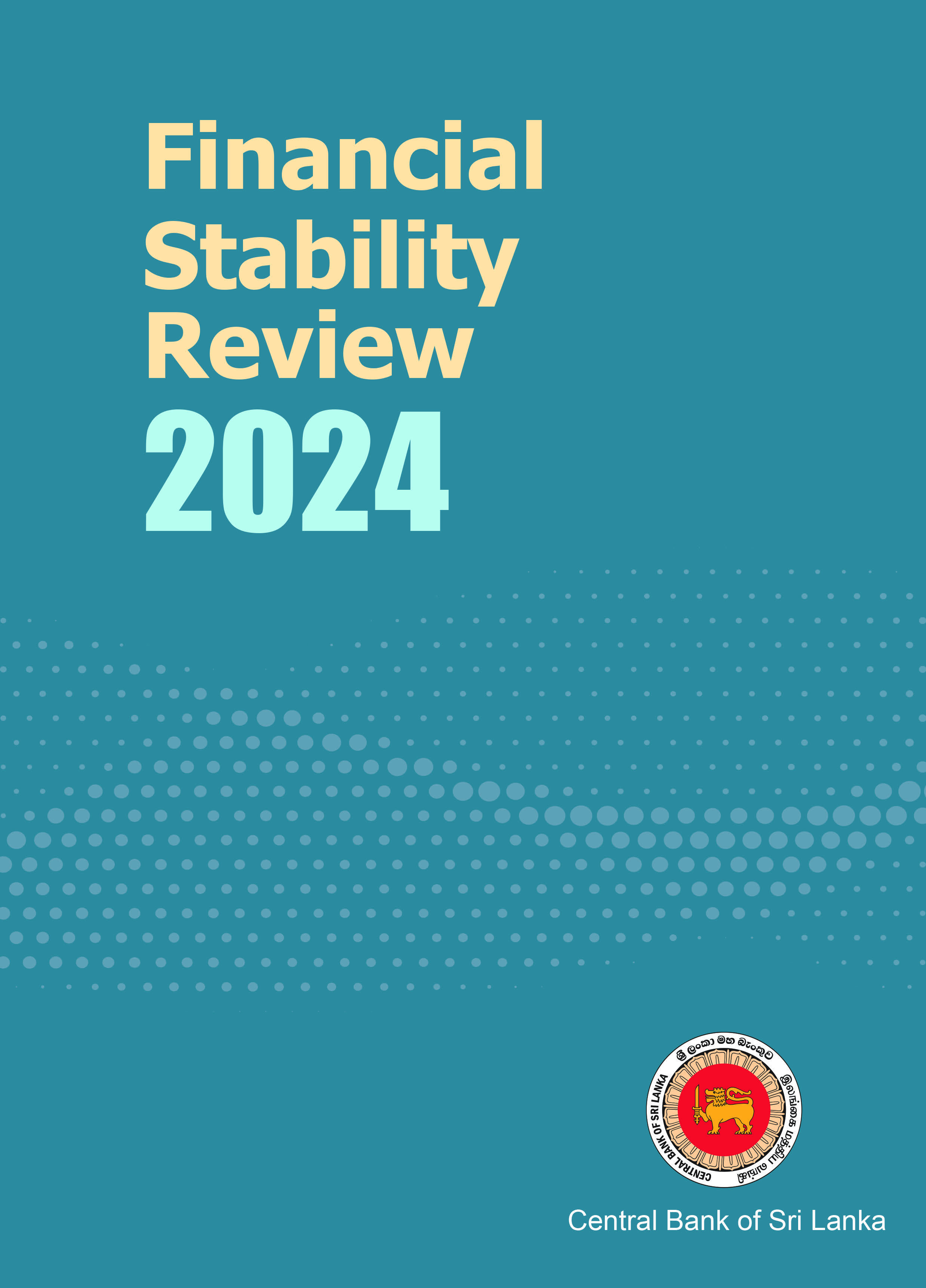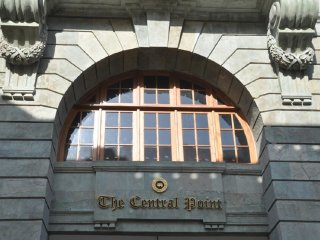The Sri Lankan economy faced heightened challenges in 2018, emanating mainly from the global economic, financial and geo-political developments that adversely affected the external sector. There were also several domestic challenges. Political uncertainties, especially during the last quarter of the year, amplified challenges to overall macroeconomic stability. Sub-par economic growth continued in 2018 following subdued growth in 2017. Favourable weather conditions supported a rebound in the agriculture sector while the expansion in services activities has been broad-based.
-
Road Map 2019 - Monetary and Financial Sector Policies for 2019 and Beyond
-
Monetary Policy Review - No. 8 of 2018
The Monetary Board of the Central Bank of Sri Lanka, at its meeting held on 27 December 2018, decided to maintain policy interest rates at their current levels. Accordingly, the Standing Deposit Facility Rate (SDFR) and Standing Lending Facility Rate (SLFR) of the Central Bank will remain at 8.00 per cent and 9.00 per cent, respectively. The Board considered current and expected developments in the domestic economy and the domestic financial markets as well as the global economic environment, with the broad aim of stabilising inflation at mid single digit levels in the medium term to enable the economy to achieve its potential growth.
-
Inflation in November 2018
Headline inflation as measured by the yearon-year change in the National Consumer Price Index (NCPI, 2013=100) reversed its declining trend, recording 1.0 per cent in November 2018 from 0.1 per cent in October 2018. The increase observed in year-on-year inflation in November 2018 is mainly driven by the increase of the prices of Food items. Year-on-year Food inflation increased to -3.9 per cent in November 2018 from -6.6 per cent in October 2018. However, year-on-year Nonfood inflation decreased from 5.8 per cent in October 2018 to 5.2 per in November 2018.
The change in the NCPI measured on an annual average basis decreased to 2.7 per cent in November 2018 from 3.3 per cent in October 2018.
-
External Sector Performance - October 2018
Sri Lanka’s external sector continued to be under pressurein October 2018. The trade deficit widened significantly in October due to a higher growth in import expenditure alongside a marginal growth in exports. However, it is expected that the trend of increasing imports will reduce in the coming months with the lagged impact of recently introduced restrictions on certain import categories. Meanwhile, workers’ remittances recorded a healthy increase in October, while earnings from tourism registered a marginal growth. The financial account witnessed outflows of foreign investments from the government securities market and the Colombo Stock Exchange (CSE).Foreign currency outflows together withimport expenditure exerted pressure on the domestic foreign exchange market.
-
External Sector Performance - December 2015
Sri Lanka’s external sector showed a mixed performance in the month of December 2015 with a widened trade deficit, continued high growth in tourist earnings and moderate workers’ remittances. On a cumulative basis, the trade deficit widened marginally during 2015, while earnings from tourism increased significantly. Meanwhile, workers’ remittances recorded a marginal decline in 2015. The major source of inflows to the financial account of the BOP during 2015 were the issuance of two international sovereign bonds and swap arrangement of the Reserve Bank of India.
-
Sri Lanka Purchasing Managers’ Index - November 2018
The slowdown observed in manufacturing activities in November was mainly driven by the slowdown in new orders and production, especially in manufacturing of textiles, wearing apparels, leather and related activities. However, new orders and production in the manufacturing of food and beverages activities has improved with the Christmas season demand. Employment remains unchanged during the period due to the difficulties in recruiting additional employees, especially in manufacturing of furniture activities.
-
Central Bank of Sri Lanka hold its 11th International Research Conference
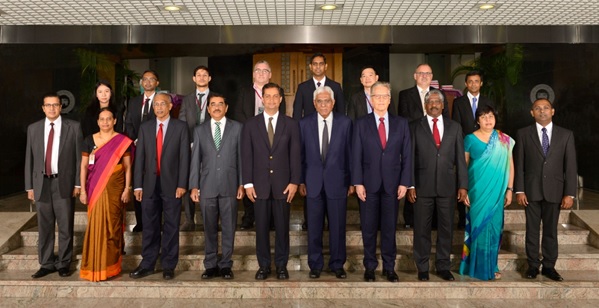 The Central Bank of Sri Lanka held its 11th International Research Conference on 07 December 2018 at the John Exter International Conference Hall. This conference is held annually, with the objective of promoting theoretical and empirical research in fields related to contemporary macroeconomic policy, providing an opportunity for researchers from diverse backgrounds to share their findings and experiences. This year’s conference was held under the theme of “Inflation Targeting and Central Bank Independence, Accountability and Transparency”.
The Central Bank of Sri Lanka held its 11th International Research Conference on 07 December 2018 at the John Exter International Conference Hall. This conference is held annually, with the objective of promoting theoretical and empirical research in fields related to contemporary macroeconomic policy, providing an opportunity for researchers from diverse backgrounds to share their findings and experiences. This year’s conference was held under the theme of “Inflation Targeting and Central Bank Independence, Accountability and Transparency”. -
Compensation Payments to the Depositors of The Standard Credit and Finance Ltd. under Sri Lanka Deposit Insurance and Liquidity Support Scheme
The license issued to The Standard Credit and Finance Ltd.(TSCFL) to carry on finance business has been cancelled with effect from 25.07.2018 in terms of the provisions of the Finance Business Act No. 42 of 2011.
The Central Bank of Sri Lanka has taken steps to pay compensation under the Sri Lanka Deposit Insurance and Liquidity Support Scheme to the depositors of The Standard Credit and Finance Ltd. Compensation payments will be made in line with the provisions of Sri Lanka Deposit Insurance Regulations. Instructions on the application criteria will be notified through the print and social media.
The depositors of the Standard Credit and Finance Ltd. are hereby informed to submit duly completed claim forms along with the required documentation to the Resolution and Enforcement Department of the Central Bank of Sri Lanka once the notification is issued in the press and social media in due course.
-
54th SEACEN Governors’ Conference / High-Level Seminar and the 38th Meeting of the SEACEN Board of Governors
The Central Bank of Sri Lanka hosted the 54th SEACEN Governors’ Conference / High-Level Seminar and the 38th Meeting of the SEACEN Board of Governors in Colombo from 29 November to 02 December 2018. These events were attended by Governors and delegates of SEACEN member Central Banks and Monetary Authorities. The Deputy Managing Director of the International Monetary Fund (IMF), Mr. Mitsuhiro Furusawa, attended the Conference as the Keynote Speaker.
The SEACEN Centre plays a leading role in promoting greater understanding in financial, monetary and banking matters in the Asia-Pacific region. Established in 1982, The SEACEN Centre serves central banks and monetary authorities in Asia-Pacific through learning programmes, research work, and networking.
-
CBSL Disputes the Rating Agencies’ Latest Rating Decisions
The Central Bank of Sri Lanka (CBSL) is of the view that the decisions by Fitch Ratings on 3 December 2018 and Standard and Poor’s (S&P Global Ratings) on 4 December 2018 to downgrade Sri Lanka's Long-Term Rating from ‘B+’ (Stable) to ‘B’ (Stable) are based on uncorroborated facts on the country’s macroeconomic fundamentals.







